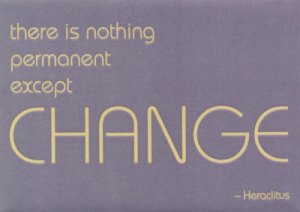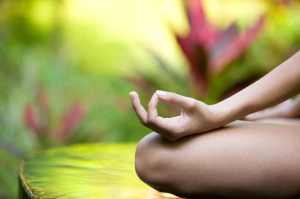 “Approximately seventeen million Americans suffer from true clinical depression each year, and over twenty-eight million Americans take antidepressant drugs or anxiety medications.” (1) One is always looking for alternative treatments for illness rather than just relying on traditional Western Medicine. Here is an in depth look into utilizing Holistic modalities to treat Depression. Treatments such as cognitive therapy, aromatherapy, diet and lifestyle changes, nutritional supplements, Qigong, acupuncture, and herbal treatments are common practices used by holistic professionals to provide a more natural way to treat depression. There is a higher rate of relapse depression when western drugs are used, unless people they stay on the drugs for the rest of their lives to decrease risk of relapse. Taking an approach to incorporate holistic modality treatments can relieve one’s symptoms and retrain one’s immediate negative train of thought as well as a lower chance of relapse. Adverse side effects are rare with holistic modalities when utilized or used in the addition to Western medicine. (1)
“Approximately seventeen million Americans suffer from true clinical depression each year, and over twenty-eight million Americans take antidepressant drugs or anxiety medications.” (1) One is always looking for alternative treatments for illness rather than just relying on traditional Western Medicine. Here is an in depth look into utilizing Holistic modalities to treat Depression. Treatments such as cognitive therapy, aromatherapy, diet and lifestyle changes, nutritional supplements, Qigong, acupuncture, and herbal treatments are common practices used by holistic professionals to provide a more natural way to treat depression. There is a higher rate of relapse depression when western drugs are used, unless people they stay on the drugs for the rest of their lives to decrease risk of relapse. Taking an approach to incorporate holistic modality treatments can relieve one’s symptoms and retrain one’s immediate negative train of thought as well as a lower chance of relapse. Adverse side effects are rare with holistic modalities when utilized or used in the addition to Western medicine. (1)
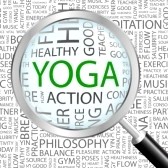
Depression is a reflection of disturbances in a person’s mood. Mood is defined as a prolonged emotional state that dominates an individual’s outlook. Depression is the most common mood disorder seen in the US. A patient is diagnosed according to the DSM-IV criteria; a patient must exhibit signs of depression for at least two years or one year for children and adolescents. Patients that are depressed will have at least three of the following symptoms: low self-esteem, lack of confidence, pessimism, hopelessness, despair, lack of interest in activities, fatigue, guilt, irritability, excessive anger, lessened productivity, and difficulty concentrating. Low levels of serotonin and increased levels of cortisol contribute to depression. Serotonin is an important neurotransmitter that is delivered to the brain which elevates or tranquilizes the brain’s own mood. The making of serotonin depends on how much tryptophan is delivered to the brain. The lower levels of serotonin will lead to more severe cases of depression. The typical pattern when observing depression is low levels of serotonin, with elevated morning cortisol levels and decreased DHEA levels. There is a link between the secretion of Thyroid and Adrenal hormones and depression, however which links what to what is still undetermined and most often a combination of all 3 issues. Certain elements such as a person’s environment can produce psychological and neurological symptoms. Smoking is a habit that can lead to depression because nicotine stimulates adrenal hormone secretion. Vitamin C is utilized in the body to detoxify the smoke which leads to a higher risk of a Vitamin C deficiency. A low-level of Vitamin C has been shown to result in depression and hysteria. If a person’s diet has low levels of B6, one could be simply depressed from a B6 deficiency. Omega-3 has also been studied and concluded that it can reduce developmental depression. Omega-3 is utilized by producing myelin sheaths for nerve ending in the brain. Alterations in membrane fluidity can change behavior, mood, and mental function. Western Medicine prescribes pharmaceuticals such as Prozac, Zoloft, and Paxil; all 3 of these drugs increase the effects of serotonin in the brain. Most often patients have to stay on the drugs for the rest of their lives. The combination of western medicine with certain Holistic methods can have adverse effects and should be avoided. Each holistic method is different and can work great as an alternative and one can utilize multiple methods at the same time. Cognitive therapy, aromatherapy, diet and lifestyle changes, nutritional supplements, Qigong, acupuncture, and herbal treatment are common practices to help naturally relieve and prevent symptoms of depression (1)
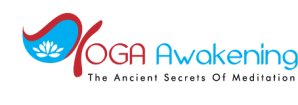
Cognitive therapy is one of the most successful in the treatment of Depression. Patients that seek cognitive therapy have a much lower risk of relapse of depression. The therapist teaches the patient new skills for dealing with depression and uses five basic tactics: first help one recognize the negative automatic thoughts, second be able to dispute the negative thoughts by focusing on contrary evidence, third patients learn different explanations to dispute the negative thoughts, fourth how to avoid rumination by gaining better control over one’s thoughts, and fifth questioning the patient’s cause of negative thoughts and beliefs and replacing the thoughts with empowering positive thoughts. The main purpose of this therapy is to improve one’s quality of life through solution- oriented psychotherapy. Time and constant sessions will be needed to properly retrain the brain and prevent relapse, but Cognitive therapy has been found to be the most beneficial in treating depression and can be used not only by it but in addition to antidepressants if that’s what the patient needs to be able to function. (1)(2)
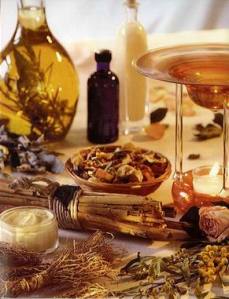
Aromatherapy is seen more often now in practices to help patients with depression. The essential oils of plants can be heated to diffuse in a room or be used as the make-up of massage oils. (2) Certain scents relieve different symptoms of depression. Orange and citrus scents have been shown to reduce stress and depression. Orange and Neroli lower stress and one’s blood pressure. A combination of Neroli, valerian, and nutmeg can release tension in the body. True clinical depression responds better to the more refined scent of orange blossom (known as Neroli) as well as lemon to help maintain emotional balance. Paoulo Rovesti PhD came up with the combination of jasmine, sandalwood, orange, and lemon verbena to treat depression and received excellent results. A person can not get a prescription for aromatherapy from the doctor except for one experimental clinic in Balu, Azerbaijan prescribes sniffing an herbal plant for ten minutes twice a week in a sunroom. Plants such as Rose Geranium can help symptoms such as neurosis, headaches, and insomnia. Common combinations of oils that practitioners formulate for depression are 2 drops of each of the following oils mixed together: lavender oil, neroli, marjoram, ylang-ylang, chamomile and clary sage. (3) There is not enough evidence to support aromatherapy as a treatment for depression. However when combined with other treatments it has shown evidence to support its effectiveness. (2)

Diet and lifestyle changes as a form of therapy is a good place to start when treating depression as a whole and should be utilized with other modalities. A diet high in fiber rich plants, grains, legumes, nuts and seeds should be consumed, while avoiding intake of caffeine, nicotine, other stimulants, and alcohol. One needs to monitor glucose levels closely especially if consuming alcohol because the body can become hypoglycemic which can cause depression. A nutrient deficiency can alter brain function and easily show signs of depression, anxiety, and other mental disorders. Lifestyle changes to incorporate are seeking out a counselor or therapist, practice relaxation and stress reduction techniques; follow through with a positive mental attitude, and incorporating exercise into one’s daily activities. (1) Exercise such jogging, running, yoga, bicycling are effective in producing endorphins and overall better sense of wellbeing. (2)
Nutritional supplements are organic and inorganic chemicals required for the body to properly function. They are usually in tablet, capsule, or powder form or by intramuscular and intravenous injection. Vitamins and Minerals can also be found in foods one consumes. It has been speculated that folate and Vitamin B-12 might facilitate monoamine neurotransmitter synthesis by promoting synthesis of tetrahydrobiopterin, a cofactor involved in converting amino acids to serotonin, dopamine, and norepinephrine. Vitamins that are antioxidants are thought to improve mood by decreasing oxygen free radicals in the brain. Vitamin D is thought to effect mood through activational effects on the brain. There is promising evidence to support the effectiveness of folate for depression, but more research needs to be done to determine whether the other vitamins are effective for depression. (2)

Qigong is an ancient Chineseand Korean practice that has been practiced for years in Eastern Medicine. Qigong means “vital energy” and “breath.” The word gong means “work, “and incorporates a practice in meditation, breath exercises, and body movements. Research has shown significant improvements in patients, however daily practices and regular sessions with an instructor are necessary to maintain the benefits. (4) Qigong lives on the principles that if one can cultivate, store, and manipulate his/her energy, one is essentially activating the system of the physical organism at a more fundamental level than mere symptomatic relief. Depression is considered an illness of the body and spirit and Qigong is a very spiritual practice in which one draws on a source of energy beyond them. Energy moves with intent and focus, and as one practices working more with qi, it will create a mind shift in his/her consciousness. The body can relax and begin to heal itself. Qigong combined with psychotherapy and other modalities will heal and one will want to maintain the energy flow and feeling in a healthy state. (5)
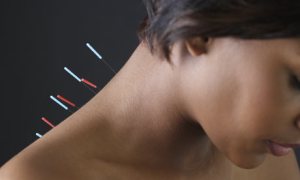
Acupuncture is a traditional Chinese treatment in which needles are inserted in the body in order to balance a person’s yin and yang forces that circulate along channels in the body. It has been known to correct imbalances in these forces. Western Science research has indicated that acupuncture can stimulate the synthesis and release of norepinephrine and serotonin. Multiple studies have shown acupuncture to be as effective as tricyclic antidepressants. Research is still being done everyday but this modality seems to show a very promising treatment for patients with depression. Other studies have also examined the benefits of combining acupuncture to antidepressant medication. (2)

One of the most suggested herbal treatments of Depression is St. John’s Wort. St. John’s Wort is an extract of the flowers and leaves of Hypericum perforatum. In many studies it was shown to outperform a placebo with no increase of side effects. In another study it was shown that imipramine (antidepressant) worked faster than St. John’s Wort but St. John’s Wort was just as effective and caused fewer side effects. Even put up against Prozac it was shown to be just as effective and not have Prozac’s side effects such as vomiting, dizziness, anxiety, and erectile dysfunction. St. John’s Wort has been shown to be most effective to treat mild to moderate depression. One needs to be sure to know all interactions with the medications one is prescribed. St. John’s Wort combined with serotonergic antidepressants can increase the risk of serotonin syndrome. It can also induce mania in bi-polar patients and can interfere with the metabolism and absorption of numerous medications and should be avoided before surgery due to possible heart problems from use of the herb. (4) St. John’s Wort has been shown to be effective in treating mild moderate depression and has less severe side effects than antidepressants. (2)
The holistic treatments with the best evidence are St. John’s Wort, and physical exercise. When compared the supportive evidence for antidepressants or face- to –face cognitive therapy, St. John’s Wort doesn’t have as many studies to have contrasting evidence. The other modalities may be useful, but the available evidence is only shown in mild to moderate depression. As more years pass, more studies will be done, especially with a shift in society leaning more towards holistic modalities to heal ailments rather than just relying on western medicine. Depression is a hard ailment to treat just holistically and each individual needs to be thoroughly examined in order to find out which is the best treatment for him/her. A combination of both eastern and western medicine is something practitioners should consider when treating patients that suffer from Depression. Cognitive therapy will always be the strongest when working with patients that suffer from depression, which treats the whole mind-body rather than just altering symptoms with medication.
Bibliography:
(1) Murray M N.D. Pizzorno J N.D.: Depression In: Encyclopedia of Natural Medicine 2nd Ed; Rocklin, CA: Prima Publishing; 1998:377-400.
(2) Jorm A, Christiansen H, Griffiths K, Rodgers B. Effectiveness of Complementary and self help treatments for depression. MJA.2002: 176:584-596.
(3) Keville K, Green M. Aromatherapy: A Complete Guide to the Healing Art 2nd Ed. Berkeley, CA: Crossing Press of 10 speed Press: 2009.
(4) Brown R M.D. Gerburg P M.D. Muskin P M.D. How to use Herbs, Nutrients, and Yoga in Mental Healthcare. New York, NY: WW. Norton & Company Inc:2009
(5) Gaik F. Managing depression with Qigong. London, U.K: Jessica Kingsley Publishers:2009
Minor Sources:
Dr. Podell. Alternative treatments for anxiety, Depression, and Stress related disorders. Dr. Podell’s Perspective: http://www.drpodell.org/alternativetreatmentsfordepression. Accessed Oct 16, 2010.
MacPherson H, Schroer S (2007) Acupuncture as a complex intervention for depression: A consensus method to develop standardized treatment protocol for a randomized controlled trial. Complementary Therapies in Medicine, 15 (2). 92-100.
 My lungs inhale my needs
My lungs inhale my needs
